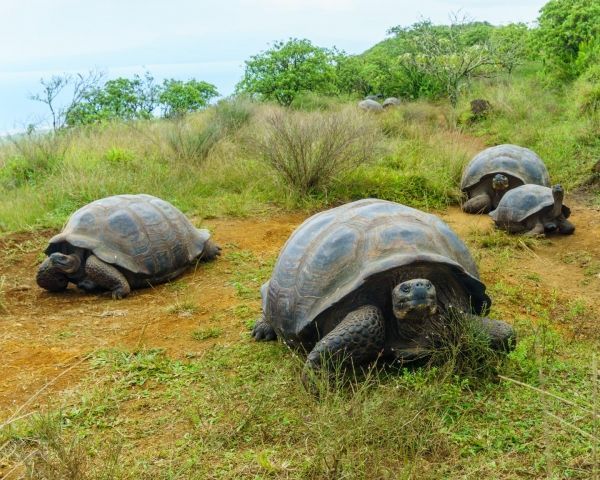Galapagos giant tortoises, sometimes called Gardeners of the Galapagos, are creatures of habit. In the cool dry season, the highlands of the volcano slopes are engulfed in cloud which allows the vegetation to grow despite the lack of rain. On the lower slopes, however, there is no thick fog layer, and vegetation is not available year round. Adult tortoises thus spend the dry season in the higher regions, and trek back to the lower, relatively warmer zones where there is abundant, nutritious vegetation when the rainy season begins.
The tortoises often take the same migration routes over many years in order to find optimal food quality and temperatures. The timing of this migration is essential for keeping their energy levels high, and climate change could disrupt a tortoise’s ability to migrate at the right time.
In the Ecological Society of America’s journal Ecology, researchers use GPS to track the timing and patterns of tortoise migration over multiple years.
Read more at Ecological Society of America
Image: Galapagos giant tortoises are sometimes called gardeners of the Galapagos because they are responsible for long-distance seed dispersal. Their migration is key for many tree and plant species' survival. (Credit: Photo courtesy of Guillame Bastille-Rousseau)


